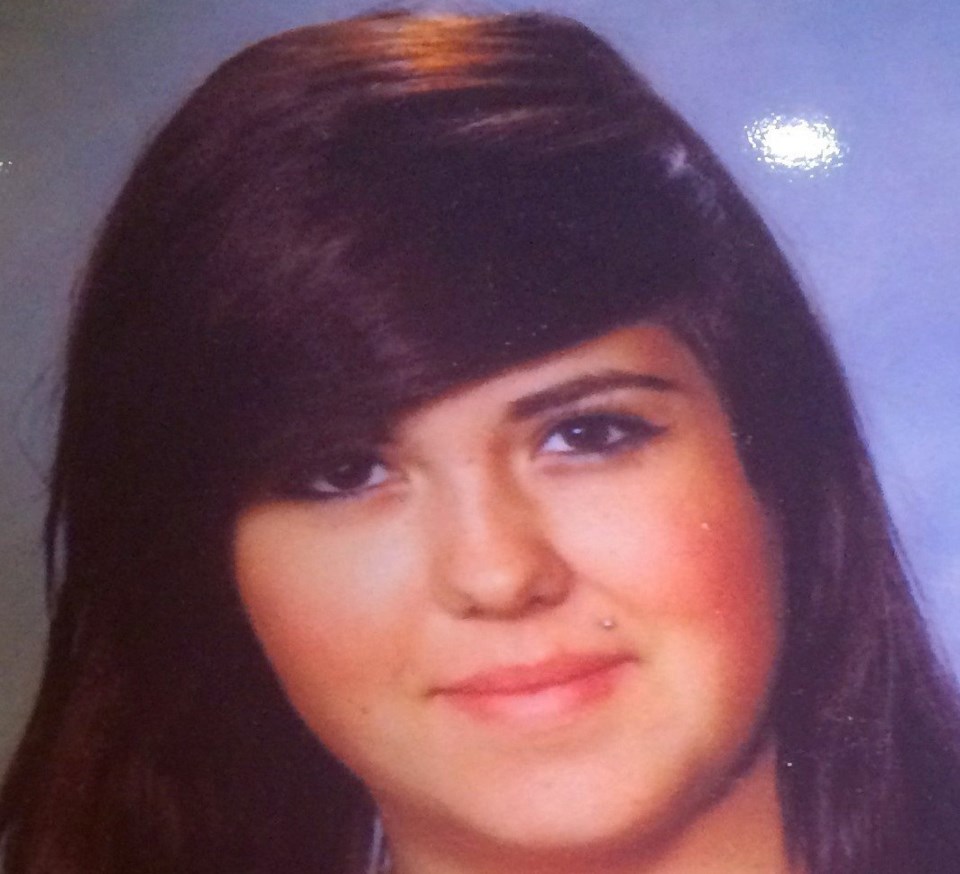The B.C. government is refusing to review its care of a teenage girl who took her life one day after turning 19 and officially “aging out” of the child welfare system, a document shows.
The government had been providing services to Carly Fraser in the 12 months prior to her death in Vancouver in December 2014.
“However, because she was 19 years old at the time of her death, she was no longer considered a ‘child’ or ‘youth’ ” under the province’s child welfare law, the Ministry of Children and Family Development said in an Aug. 15 letter to her mother, Lisa Fraser.
“Therefore, according to ministry policy, her apparent suicide was not reported to the director nor can this incident be considered for a case review.”
Lisa Fraser and the Opposition demanded Wednesday that the government reconsider its decision and order a review.
“How can we possibly learn from the loss of Carly’s life if the ministry won’t even open the file?” NDP Leader John Horgan asked in the legislature.
Stephanie Cadieux, the minister of children and family development, said she was unable to speak about a specific case.
She noted, however, that the policy on case reviews has changed since the representative for children and youth, Mary Ellen Turpel-Lafond, released a report in May on the overdose death of another 19-year-old.
“For the first time ever, all 19-year-olds who tragically die but have received services from [the] ministry in the last year will also have their full case file reviewed by the office of the provincial director,” Cadieux said.
It’s unclear whether that will apply retroactively in Carly Fraser’s case. Cadieux issued a statement later in the day saying that she has asked the director of child welfare to determine whether the case-review policy was applied correctly.
“I can’t imagine the pain the mother of the young woman whose story was the subject of question period today is enduring,” Cadieux said. “I am sorry for her loss and respect her right to seek answers that might help her make sense of a life lost too soon.”
Lisa Fraser told reporters that she wants to understand what happened in her daughter’s case. “I want answers to how the decisions were made, who made them, why they made them and why they wouldn’t listen to anything I said.”
She said that when her daughter was 15, they signed a voluntary-care agreement with the ministry in October 2011. Fraser said she had trouble coping with Carly’s drug use, while Carly had difficulty coping with her mother’s depression.
“She wanted to go into foster care. We all decided that if that is what she wanted and that was going to make her happy, ‘OK, go there.’ Instead of just running way.”
Fraser said the ministry placed Carly in a Burnaby group home. “She was still going to school,” she said. “She was working part time. She was doing all right.”
A year later, she said, the ministry informed her that Carly was being moved into a basement suite on her own. “I said, ‘You’ve got to be nuts. Like, she’s only 16. Give her a little bit of time.’ They said, ‘No, we’re out of time.’ ”
In the three months she was in the suite, Carly was raped twice, her mother said. “She quit school. She quit working.”
The ministry then moved her to another group home, but she ran away after a few days, she said.
She said Carly’s voluntary-care agreement expired in January 2013 and, from then on, her daughter lived on the street, with a boyfriend, with a family and then, again, in her own apartment.
The NDP said that, in the summer of 2013, Carly was taken to Lions Gate Hospital after expressing suicidal thoughts. She was released the next day. In November 2013, she was put on a suicide watch at Surrey Memorial, where she was diagnosed with a borderline personality disorder.
Horgan cited the case as another example of the ministry’s failed policies around children who age out of the system.
“When you’re in the care of government, there is an expectation by all of us that government is going to be there not just until you turn 19,” he said. “That clearly did not happen in this case.”



